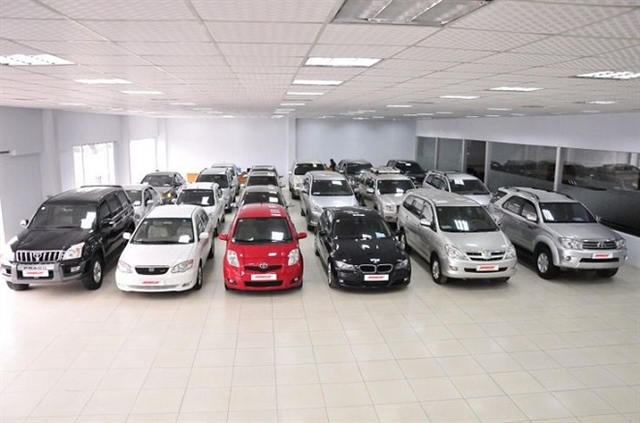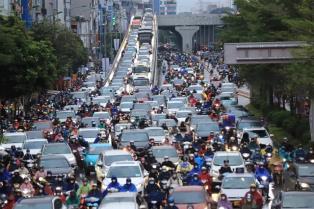The recent decline in Việt Nam's automobile consumption and its shift to the 5th position in Southeast Asia can be attributed to both external and internal factors, according to car experts.

The recent decline in Việt Nam's automobile consumption and its drop to fifth place in Southeast Asia can be attributed to both external and internal factors, car experts said.
According to the Association of Southeast Asian Automobile Manufacturers (AAF), in the first six months this year, Indonesia took the lead in car sales with 505,000 units, an increase of 6.3 per cent over the same period last year. Thailand was in second place with 406,000 units, a slight decrease of 5 per cent while Malaysia came in third with 366,000 units, an increase of 10.3 per cent. Notably, the Philippines rose from fifth position to fourth with 202,415 cars sold, a sharp increase of 30.7 per cent. Meanwhile, Việt Nam dropped to fifth place with 137,327 units, a sharp decrease of 32 per cent compared to the same period last year.
According to industry insiders, external factors such as the Russia-Ukraine conflict and global inflation have had an impact on Việt Nam's automobile consumption, along with other adverse developments. These factors affected consumer confidence and purchasing power, leading to a decrease in car sales.
Domestic auto sales in August plunged nearly 27 per cent year-on-year to 22,540 units as consumers continued to tighten their spending amid economic difficulties. Sales in August were lower than in June and July.
Internally, Việt Nam faces challenges in its economy and market conditions that have contributed to the decline in automobile consumption. Compared to some Southeast Asian countries, Việt Nam's economy is still developing, and the living standards and purchasing power of its people may not be as high.
Phạm Cường, Chairman of the Việt Nam Auto Motorcycle and Bicycle Association (Vamoba), said Việt Nam’s car prices are relatively high compared to other countries in the region, with a price policy that is considered unstable. This price disparity, along with limited choices in car models, can affect consumer preferences and their ability to purchase cars.
Đào Công Quyết of the Vietnam Automobile Manufacturers Association (VAMA), has pointed out that Việt Nam was affected by the COVID-19 pandemic later than other Southeast Asian countries, which resulted in a delay in its recovery. As a result, it may take more time for Việt Nam to show signs of improvement in general consumption of goods, including automobiles.
Other factors contributing to the decline in car consumption in Việt Nam include high bank interest rates and liquidity issues in the real estate market. These factors can affect consumer financial capabilities and their willingness to invest in high-value goods like cars, Quyết added.
Car expert Nguyễn Minh Đồng said car prices in Southeast Asia countries are 30-40 per cent cheaper than in Việt Nam. While, Việt Nam’s price policy is not stable. Car markets in these countries also have more car models, therefore, consumers have more choices. Đồng said it is necessary to exempt and reduce special consumption taxes and some types of fees and charges for cars so as to create incentives for more people to buy cars.
Trần Thanh Tùng, Head of Business Administration at Hồ Chí Minh City University of Economics and Finance, said it is worth noting that the decline in car sales in Việt Nam is not necessarily viewed as a bad signal. Some experts see it as a reflection of cautious spending in the context of slowing economic growth and high loan costs. In addition, it can help alleviate pressure on the country's road infrastructure, which is already burdened by a high number of personal vehicles.
To address the decline in automobile consumption, experts have suggested measures such as exempting or reducing special consumption taxes and fees for cars, providing more car model options, and studying car loan policies from other countries in the region. These measures aim to create better conditions for consumers and stimulate the market. — VNS





